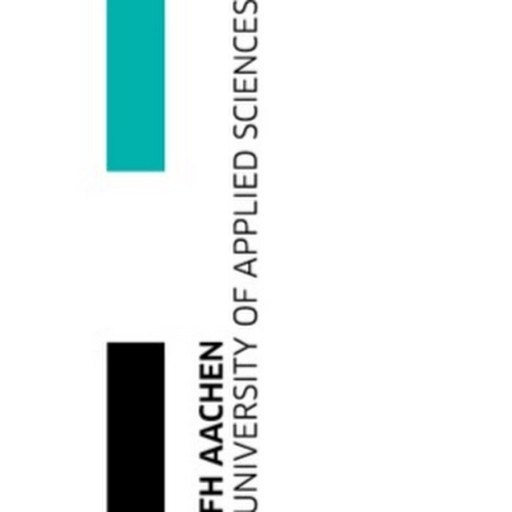Photos of university / #sciencespo
International Security at Sciences Po is an esteemed graduate program designed to equip students with a comprehensive understanding of the complex and evolving landscape of global security challenges. The curriculum combines rigorous theoretical frameworks with practical insights to analyze conflicts, terrorism, cyber threats, geopolitics, and international diplomacy. Students will explore the historical context of security issues, examine the roles of state and non-state actors, and critically assess policy responses at both national and international levels. The program emphasizes interdisciplinary learning, integrating political science, history, law, and economics to prepare graduates for careers in policy analysis, diplomatic service, international organizations, and academic research. Through a combination of lectures, seminars, case studies, and simulations, students develop analytical skills, strategic thinking, and a nuanced understanding of security dynamics. The program also offers opportunities for internships, field visits, and engagement with practitioners in the field of international security. Graduates will be equipped to address contemporary security issues with innovative strategies and a global perspective. The program fosters a vibrant academic environment with faculty renowned for their expertise and active involvement in research and policy debates. With a focus on critical thinking, ethical considerations, and practical solutions, the International Security program at Sciences Po prepares students to become informed and effective professionals capable of contributing to a safer and more stable world. Whether pursuing careers in government, international organizations, NGOs, or academia, students will find a rigorous, international-oriented education that aligns with the demands of today’s security environment.
This intensive two-year program is divided into three academic semesters and one semester outside the school spent in a professional internship or a study program in a partner university.
Students follow the fundamentals common to all PSIA (Paris School of International Affairs) programs, with courses in global politics, international law and international economics, enabling them to acquire the fundamental concepts and tools to analyze the contemporary world. They also acquire basic management tools and expertise in quantitative methods.
On top of fundamentals, students study 9 specialized courses (core courses) addressing the major themes of international security, choosing a particular approach taught to a very high level of expertise by academics and practitioners among the following fields:
- Security
- Use of Force
- Proliferation and Arms Control
- Workshop in Conflict Resolution
- Conflicts
- Post Conflict
- War and Law and International Justice
- Multilateral Security
Students therefore choose two concentrations, each of which consists of four courses, including a mandatory regional concentration, to develop or expand their knowledge of a particular region in the world, within a multidisciplinary framework.
The program enjoys close collaboration with French defense institutions, notably the Saint-Cyr-Coetquidan military school and the French Navy Centre d'Etudes Supérieur, allowing students to familiarize themselves with the existing articulations between public and private decision making in the fields of defence and security. This collaboration also allows them to acquire the theoretical and technical knowledge related to these issues, along with an overall vision of the issues involved in defence, peace-keeping and international security.
For all programmes:
- CV/Résumé
- Official academic transcript(s) (signed and/or stamped) for the entirety of your time in higher education (including periods spent abroad on exchange programmes).
- An official or informal translation in English, if applicable
- Language Test certificate (where applicable)
- Two academic references. Please note that certain programmes require one or two professional references in addition to the academic ones.
- An official proof (signed and stamped) from your university, providing your undergraduate cumulative grade average (and your graduate cumulative grade average if applicable). Please provide one certificate by degree and/or institution attended.
- Articles or other texts which you have written or published (not mandatory)
•TOEFL IBT 100
•IELTS 7
•Cambridge English Advanced C1
- students whose tax residence is in the European Economic Area pay fees according to a sliding scale, from € 0 to € 10 370/year for the undergraduate programmes and from € 0 to € 14 270 for the Master's programmes;
- students whose tax residence is not in the European Economic Area will pay fees of € 10 370/year for the undergraduate programmes and € 14 270 for the Master's programmes.
Annual income per fiscal dependent and fees
66 584 € and over: 14 270 €
43 250 € to 66 583 €: 12 020 €
36 250 € to 43 249 €: 9 980 €
30 250 € to 36 249 €: 8 370 €
25 250 € to 30 249 €: 6 730 €
21 250 € to 25 249 €: 4 950 €
19 584 € to 21 249 €: 3 360 €
18 250 € to 19 583 €: 2 700 €
17 250 € to 18 249 €: 1 840 €
16 250 € to 17 249 €: 1 380 €
14 250 € to 16 249 €: 920 €
12 584 € to 14 249 €: 530 €
0 to 12 583 €: 0
International Security at Sciences Po is a comprehensive and rigorous programme designed to provide students with an in-depth understanding of the key issues, theories, and practices related to global security. The curriculum covers a diverse range of topics including conflict resolution, military strategies, international diplomacy, terrorism, cybersecurity, nuclear proliferation, and humanitarian interventions. The programme aims to equip students with both theoretical frameworks and practical skills necessary to analyze security challenges in the modern world.
Students benefit from a multidisciplinary approach, combining political science, international relations, law, economics, and history to develop a nuanced perspective on security issues. The programme emphasizes critical thinking, policy analysis, and research methodologies, preparing graduates for careers in government, international organizations, think tanks, NGOs, and the private sector. The faculty comprises leading experts and practitioners in the field of security studies, offering students hands-on experiences through simulations, case studies, and internships.
The programme often includes opportunities for fieldwork, conferences, and collaborations with security agencies and policymakers. Students are encouraged to engage with current security challenges through seminars, workshops, and research projects, fostering a global outlook and understanding of diverse perspectives. The duration typically spans two years, with options for electives and specialization tracks within security studies. Upon completion, graduates receive a Master’s degree recognized internationally, opening pathways to advanced research or professional roles in the security sector.
Sciences Po’s extensive network and location in Paris offer unique opportunities for engagement with European and international security institutions. The programme also promotes language skills and intercultural competence, reflecting the globalized nature of security issues today. Overall, the International Security programme at Sciences Po combines academic excellence with practical relevance, aiming to prepare students to become innovative and effective security professionals and policymakers.










